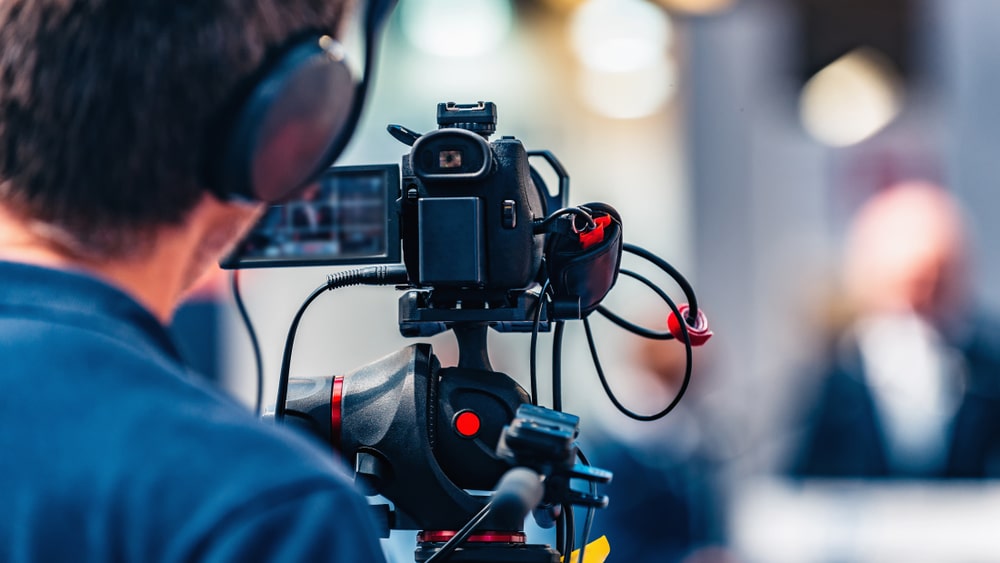Advanced Legal Videography for Depositions.
Advanced Legal Videography for Depositions.
Blog Article
The Function of Legal Videography in Depositions and Tests
Legal videography has actually arised as a vital device in both depositions and tests, supplying a multifaceted approach to recording witness testimonies. As lawful specialists significantly acknowledge its value, it motivates a deeper assessment of how these visual records can influence juror understandings and trial results.

Importance of Legal Videography
Lawful videography plays a critical role in the documentation and presentation of depositions and tests. This customized area combines technological abilities with lawful expertise to produce a dependable document of proceedings that can considerably affect instance outcomes. The appearance of lawful videography enhances the understanding of witness testimony, enabling jurors and courts to observe not only the talked words however also the temperament, feelings, and body movement of the witnesses.
On top of that, legal videography offers an objective account of events, reducing the possibility for misconception that can accompany created records alone. This visual documentation functions as an essential tool during test discussions, assisting in a clearer and more convincing story for both plaintiffs and accuseds. The ability to replay video clip segments during court proceedings allows lawful groups to highlight key factors, enhancing their arguments efficiently.
The relevance of lawful videography prolongs past the court room; it likewise plays an essential function in preserving proof for future recommendation, whether for charms or more lawful activity. Its assimilation into the lawful procedure is important for making sure a reasonable and exact representation of the facts, inevitably adding to the quest of justice.

Refine of Legal Videography
While recording the subtleties of depositions and tests, the procedure of legal videography involves several crucial steps that ensure top quality, exact recordings. Originally, an expert lawful videographer prepares by assessing the instance materials and recognizing the specific needs of the deposition or test. This preparation consists of acquainting themselves with the participants and the context, which helps in recording relevant information.
On the day of the recording, the videographer establishes up the needed equipment, which usually includes high-definition cameras, microphones, and appropriate lighting. Ensuring optimal angles and sound top quality is essential, as it directly affects the efficiency of the recording. The videographer interacts with lawyers and individuals to develop methods, ensuring that everyone recognizes the recording procedure.
During the deposition or trial, the videographer diligently tape-records the procedures, paying attention to both spoken and non-verbal signs. This consists of recording the demeanor and responses of witnesses and attorneys. After the session wraps up, the videographer might edit the video footage for quality and conformity with legal requirements, creating an end product that precisely reflects the procedures for future recommendation and use in legal contexts.
Benefits in Depositions
The unification of videography in depositions offers countless benefits that boost the overall procedure of gathering proof. One primary advantage is the capability to catch witness testimonies with visual and acoustic integrity, supplying a much more accurate depiction of the witness's temperament, tone, and body movement. This multidimensional technique allows attorneys and juries to assess reliability more effectively than typical written transcripts alone.
Furthermore, videographed depositions act as a powerful device for maintaining statement. Should a witness come to be unavailable for test, their tape-recorded deposition can be find out here now played in court, making sure that their evidence stays obtainable and relevant. This facet considerably reduces the risk of losing essential info that can affect situation results.

Last but not least, videography boosts the general professionalism and trust of the deposition procedure, instilling confidence in customers relating to the thoroughness of their legal depiction (legal videography). By leveraging innovation, legal experts can considerably boost the efficiency of depositions
Impact on Tests
In numerous trials, the assimilation of videography can substantially influence the discussion of evidence and the court's perception. Lawful videography records witness statements and important evidence navigate here in a dynamic layout, allowing jurors to involve with the product on multiple levels. This visual part improves the narration element of a trial, supplying context and emotional vibration that conventional text-based evidence may lack.
In addition, video recordings can offer as powerful tools for impeachment throughout cross-examination. When disparities develop between a witness's previous declarations and their court room testament, video clip proof supplies an unbiased reference that can guide jurors' viewpoints. This immediacy and quality can bolster the integrity of an event's story while simultaneously threatening opposing disagreements.

Future Trends in Legal Videography
As we look towards the future of lawful videography, several arising trends promise to reshape its role within the courtroom. One substantial trend is the integration of man-made knowledge (AI) in video analysis and editing and enhancing. AI can improve the process of determining crucial moments in tape-recorded depositions, allowing lawyers to rapidly access pertinent content, thus enhancing performance in instance prep work.
Additionally, the increase of online reality (VIRTUAL REALITY) and boosted truth (AR) innovations is expected to transform just how jurors experience proof. legal videography. By immersing jurors in a simulated atmosphere, these technologies can provide a much more profound understanding of complex scenarios, leading to more enlightened deliberations
Moreover, the increasing demand for remote depositions, sped up by the COVID-19 pandemic, the original source will likely continue. Lawful videographers will certainly need to adapt to new software application and platforms to make certain high-quality recordings in online setups.
Finally, the growing focus on information safety will certainly necessitate stricter procedures for keeping and sharing video clip evidence. As the lawful landscape develops, lawful videographers need to stay abreast of these fads to preserve their importance and effectiveness in the judicial process.
Final Thought
In summary, lawful videography offers a crucial feature in the judicial procedure, enhancing the stability of depositions and trials. By recording the subtleties of witness testimonies, this tool not only protects vital evidence but likewise help in presenting information effectively to jurors. The value of visual documentation in assessing reliability and helping with interrogation can not be overemphasized. As modern technology proceeds to evolve, lawful videography is positioned to further change its role within the lawful landscape.
Report this page